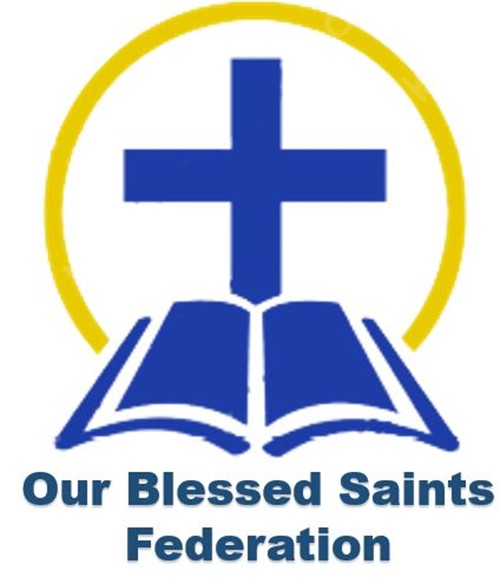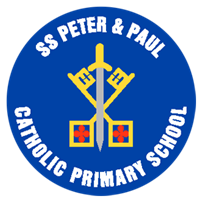Curriculum Policy
Key Principles of Our Curriculum
The curriculum:
- Is underpinned by The Catholic ethos and Gospel Values
- Has the unique and valued individual at the heart of all we do
- Raises aspirations for all pupils
- Is purposeful and relevant and ensures that learning is contextualised
- Inspires and immerses pupils in their learning
- Builds upon prior learning
- Develops a growth mind set
- Celebrates the process of learning rather than just the product and ensures that failing is seen as an opportunity for new learning
- Ensures that they are secondary ready by being balanced on skills and knowledge.
- Is memorable and experiential – ensuring that all pupils have opportunities to experiences that will offer enrichment
- Develops strong relations with the community; the school, local and wider community
- Promotes SMSC and British Values throughout their learning journeys
As a knowledge-engaged school we understand that knowledge and context underpins and enables application and development of skills. At the heart of our curriculum design is a research-informed approach therefore we teach core skills alongside knowledge as we value that both need to be developed, this is demonstrated through the journey the children have through our thematic curriculum.
IMPLEMENTATION
Our delivery of the curriculum is based on evidence from cognitive science and the following three main principles that underpin effective learning:
- The importance of knowledge acquisition through meaningful and memorable experiences
- Learning is most effective with spaced repetition (interleaved processing). Interleaving helps pupils to discriminate between topics and aids long-term retention.
- Retrieval of previously learned content is frequent and regular, which increases both storage and retrieval strength.
In addition to the three principles we also understand that learning in the short-term needs to be repeated and revisited as sustained mastery takes time.
We ask four key questions in our lessons to ensure children base their learning on what they already know so that new knowledge is links to existing knowledge to create the strong memory links and therefore encourage the transfer of learning form the short to the long-term memory:
- What do I need to remember and recall?
- What am I learning? (new learning or consolidations of prior learning)
- Why am I learning it? (connect the learning to purpose)
- How have I been successful? What do I know now, or can do better, than I could before?
ASSESSMENT
We view the progress of pupils as ‘knowing more and remembering more’. We believe the bridge between teaching and learning is assessment. Therefore, our feedback policy is an integral aspect to the curriculum.
The feedback policy ensures that learning is addressed and celebrated or moved forward in accordance to the progression of knowledge and skills where the planning has been derived from. It is important to recognise that children will not ‘work through’ the objectives as a list, instead they are to be utilised to build that long term memory over the whole year or phase timescale and interleaved.
Staff use the following to track the progress that pupils are making:
- ongoing day to day assessment (pupils are given different opportunities to show what they know, not just from the lesson, and what they have retained and can recall over time)
- in-class formative assessment (Pink for Think, open questioning, verbal feedback, reflection questions, answering of the learning question and in the moment marking)
- termly/ end of unit summative assessments in some subjects which are used to support teacher judgements
- End of mini-adventure quizzes/ presentations of knowledge
- NFER assessments for end of term summative assessment in reading, SPaG and Maths
Using assessments, pre-learning tasks and big questions, teachers plan from the curriculum maps for the child. This will then inform planning and learning that needs to be covered or revisited. Where teachers identify gaps in learning, there are programs and opportunities for interventions that can support individual or groups of children.
SUSTAINED MASTERY
Nothing is learned unless it rests in pupils’ long-term memories. This does not happen, and cannot be assessed, in the short term. We view mastery as an ability to confidently and independently apply the knowledge and skills across different contexts. Assessment therefore answers two main questions: ‘How well are pupils coping with curriculum content? and ‘How well are they retaining previously taught content?’
What do we do and how do we do it…in more detail:
At SS Peter and Paul, our thematic curriculum motivates, engages and inspires the pupils through a series of learning journeys that we have titled ‘mini-adventures’. We then thread a variety of curriculum areas (with exception of RE) through this adventure.
The beginning of each adventure is designed to hook all pupils in and acts as the ‘launch’ to the learning. Pupils are also made aware of what the ‘landing’ for this adventure will be so that they can always put their learning into context across the mini adventure for example a visit to Ironbridge after learning about the Industrial Revolution, a trip to Enginuity after 'tinkering' and designing in Reception or holding an opening to an Egyptian museum to share our 'artefacts'.
The learning journey that the pupils go on, covers a range of carefully planned subjects and are captured in their mini-adventure books. The adventures allow for clear coverage of the National Curriculum. Coverage of curriculum areas is evident in the schools’ curriculum coverage grid.
Adaptation occurs by careful and strategic task matching and questioning, and staff create the correct conditions for learning by delivering learning centralising around the learning question (Learning objective that they can answer at the end of the session) and providing opportunities for depth within this. We also use a variety of methods for recording so that no child has a barrier or ceiling to their learning if they have a specific need.
The threshold concepts are tunnels of learning that the children will regularly re-visit throughout their primary education and will be built upon as their understanding develops. There are 3 key phases that the curriculum follows through and within these are the milestones which are differentiated for every child.
We commit to ensuring that the environment engages and inspires pupils but is also language rich to support the pupils’ oracy and writing development throughout the mini-adventure.
Our curriculum provides the children with opportunities to develop their tier 3 (subject specific vocabulary), this is carefully matched to age and development and ensures previous vocabulary is built up and developed as the children move through school. Classrooms provide language rich environments to support all learners. (Please see vocabulary section in Literacy Policy)
A focus for our mini-adventures learning is to prepare our pupils to be ‘secondary ready’ by the time they leave SS Peter and Paul. This is achieved by providing contextualized, purposeful learning that develop ‘life skills’ and focuses on pupils’ development in becoming writers, mathematicians, historians and geographers etc.
At SS Peter and Paul, teachers ask and set ‘big questions’ as the children embark on their knowledge and skill journeys. The children are also given opportunity to generate their own big questions – ensuring that the responsibility and ownership of their learning lies with the child. To reiterate and embed the purposeful learning, the children return to the big questions and reflect on their learning throughout the sessions.
Teachers plan and prepare for the pupils to answer the four questions we set every lesson as they embark on the journey to know that learning is secure and purposeful: What do I need to recall/ remember? (prior knowledge) What are we learning? Why are we learning about it? How will we know if we have been successful? Pupils then return back to these questions during the learning sessions to allow them to reflect and articulate their learning.
The quote, ‘illusion of choice but perception of control’ underpins our philosophy to learning. Children have opportunity to add to the learning journey in their mini-adventure, ensuring that whilst there is learning that will be covered, children's interests and questions are taken into account and answered.
Golden threads
Throughout our children’s learning journey, they will learn our common concepts that thread through the year groups. We call these our golden threads.
For example:
Settlements would be looked at in EYFS as they think about their own home and where they live; Year 2 when they learn about the town Newport; Year 3; settlement in the UK of the Bronze and Iron age people; Year 4; Settlement of the Anglo-Saxons and Viking invasion; Year 6; displacement and settlement during and after WW2








